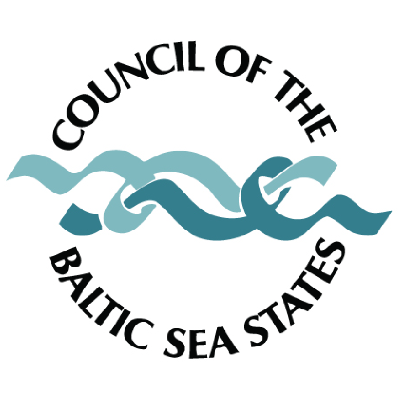The Council of the Baltic Sea States (CBSS) was established in March 1992 in Copenhagen at the Conference of Foreign Ministers of the Baltic Sea States.
Currently the CBSS includes Germany, Denmark, Iceland, Latvia, Lithuania, Norway, Poland, Finland, Sweden, Estonia as well as the European Union.
The Russian Federation was a member of the CBSS from the moment of its foundation until May 17, 2022, when a decision was made to terminate its membership in the Council (statement by the Ministry of Foreign Affairs of the Russian Federation).
The UK, Hungary, Spain, Italy, the Netherlands, Romania, Slovakia, the USA, Ukraine and France have observer status in the CBSS. Belarus also had an observer status in the CBSS, but in 2022 its operation was suspended.
The chairmanship of the Council is carried out in accordance with the principle of rotation for a period of one year. The supreme body of the CBSS is the session at the level of Ministers of Foreign Affairs which is held as the final event of the current chairmanship.
The current issues of the organization's activities, discussion of practical aspects of cooperation, preparation of sessions and meetings at the level of heads of government of the Council are handled by the Committee of Senior Officials which consists of representatives of the Ministries of Foreign Affairs of the Member States and holds regular meetings.
In 1998 the Permanent International Secretariat of the CBSS (located in Stockholm) was established to provide administrative, technical and informational support to the Baltic cooperation.
In accordance with the Declaration of the First Ministerial Session of the CBSS of March 6, 1992 and the decision of the Council of the Baltic Sea States on the revision of the long-term priorities of the CBSS of June 20, 2014, the development of youth exchanges is one of the areas of cooperation through the Council of the Baltic Sea States (within the framework of the implementation of the long-term priority "Regional Identity").
In 1994 the national councils of youth associations of the states around the Baltic Sea created the Baltic Youth Forum. From the Russian side the forum included the National Youth Council of Russia as well as regional youth councils of St. Petersburg and the Kaliningrad Region. Meetings of the Baltic Youth Forum were held twice a year.
In accordance with the decision of the 2nd Conference of Ministers for Youth Affairs of the Baltic Sea States held in 2002 in Lithuania, a Working Group on Youth Affairs was established.
In the period from 1999 to 2015 the Secretariat for Youth Affairs of the Baltic Sea Region functioned under the Regional Youth Council of the Federal State of Schleswig-Holstein (Germany, Kiel).
In 2012-2013 under the auspices of the Russian Federation's chairmanship in the CBSS two international sessions of the Youth Educational Forum "Baltic Artek" were organized with the participation of representatives of youth of the Baltic Sea Region (Kaliningrad) as well as a session on youth policy in the Baltic Sea Region as part of XI NPO Forum of the Baltic Sea Region (St. Petersburg).
The Action Plan for 2021-2025 for the implementation of the strategic document "Vision for the Baltic Sea Region – 2030" outlines the long-term goals of youth cooperation through the CBSS:
- encouraging the active and meaningful participation of young people in the formation of a common regional identity,
- strengthening the sense of belonging to the Baltic Sea Region.
Within the framework of youth cooperation through the CBSS such projects as "Youth Dialogue in the Baltic Sea Region" (since 2014), "Youth Platform for the Baltic Sea Region" (since 2020) are being implemented. The partner of the Youth Platform for the Baltic Sea Region project was the National Youth Council of Russia.
Sources: the website of the Ministry of Foreign Affairs of the Russian Federation and the collection "30 years of state youth policy of the Russian Federation" (30 years of the state youth policy of the Russian Federation / MIREA – Russian Technological University. - M., 2022. - 340 p.)




